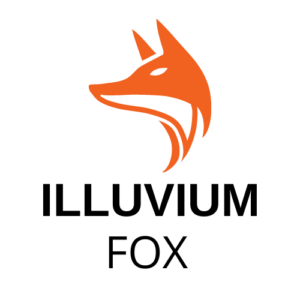
With Play to Earn (P2E) becoming ever more popular with gamers everywhere, South East Asia seems to be standing out with the potential to become the GameFi capital of the world.
SE Asia’s economic conditions means that players are seen to be really making a difference to their income with a steady stream of gaming income which will improve the standard of living of the entire region.
In Asia, for the parents of generations X and Y, video games were often the source of headaches and arguments with their children. As teenagers immersed themselves in the virtual world of fire-spitting dragons, club-wielding warlords and magical sorcery, parents worried their kids were wasting their time and money on activities that would yield little value in the long run.
Fast forward to 2022. In Manila, Philippines, not only has the social stigma on video game players disappeared but skilled players are hailed as smart, resourceful entrepreneurs who are helping to usher the country into the digital era. Such an increasingly positive view of video game players is spreading throughout Southeast Asia. This transformed perception hinges heavily on one phenomenon: GameFi.
Read more:GameFi’s Promise and Reality Are Still Worlds Apart
GameFi, also known as “play-to-earn” (P2E), is the financialization of gaming by leveraging blockchain technology. In the beginning, video games started with a pay-to-play model before transitioning into the standard freemium model.
Today, players in the GameFi world can earn and trade digital assets that can be converted into fiat to help supplement everyday financial transactions. Simply put, many of the so-called “game addicts” whom their parents worried about are now monetizing their talents and creating a sustainable income stream for themselves and their families.
Digital native and early adopters
GameFi is undoubtedly a monumental game-changer for Southeast Asia, and current economic conditions and fast-spreading digital adoption in the region could make it the global capital of the P2E model.
According toofficial data, only around 30% of adults in the Philippines have traditional bank accounts, compared with close to 100% in neighboring Asia countries, including South Korea, Taiwan and Japan. Southeast Asian countries like Cambodia, Indonesia and Vietnam also have populations that are relatively unbanked.
However, among the top 15 countries that use MetaMask, the Philippines ranked first with the most active users, followed by Vietnam (third), India (sixth), Indonesia (ninth) and Thailand (10th). These rankings offer evidence that many people in Southeast Asian countries are bypassing traditional banking routes and are quickly adopting Web 3 applications.
Moreover, the income that many players in the region earn from P2E games is enough to make a living or greatly supplement their current income. This scenario differs from the U.S. and other countries with high costs of living, where P2E income is not as important for people to support themselves. Southeast Asia will remain fertile ground for GameFi to flourish.
For this reason, my company, Infinity Venture Crypto (IVC), has allocated a sizable portion of its inaugural fund, capped at $70 million, to support the development of blockchain projects globally with a focus on Southeast Asia.
For example, Axie Infinity, one of the world’s most popular blockchain games withmore than 8.3 million players, is the creation of Vietnamese studio Sky Mavis, and has themost active users in the Philippines. Yield Guild Games (YGG), one of IVC’s portfolio companies, is a Philippines-based gaming guild decentralized autonomous organization that invests in NFTs (non-fungible tokens) used in blockchain-based games and virtual worlds.
Read more:Fintech Platform Cake DeFi Creates $100M Venture Capital Arm
To participate in P2E games, players require access to in-game NFTs, which can often be beyond their financial reach. By lending NFTs to its community members, commonly known as scholars, YGG is financially appealing to players who want to use their gaming skills to bring home extra bacon. COVID-19, which left many players jobless, also supercharged the development of P2E games in Southeast Asia.
GameFi’s pain points
While the P2E industry is off to breakneck speed in Southeast Asia, many trailblazers are struggling to keep up with the momentum. They must still address bottlenecks that are preventing players from joining P2E games more easily and hindering the acceleration of the GameFi ecosystem in Southeast Asia. An example is the lack of guild customer relationship management (CRM) software to help track scholars’ performance and withdrawals. Guilds and scholar managers now use Google sheets and Excel to do the work. Another pain point is the difficulty for scholars to convert and use the in-game tokens they earned to spend in real life.
Entrepreneurs in Southeast Asia understand these weaknesses better than anyone else and have been working to solve them, not only because they are located at the heart of the GameFi ecosystem, but also because they see the need for better software to support GameFi’s massive growth and ensure that the industry can continue to scale.

